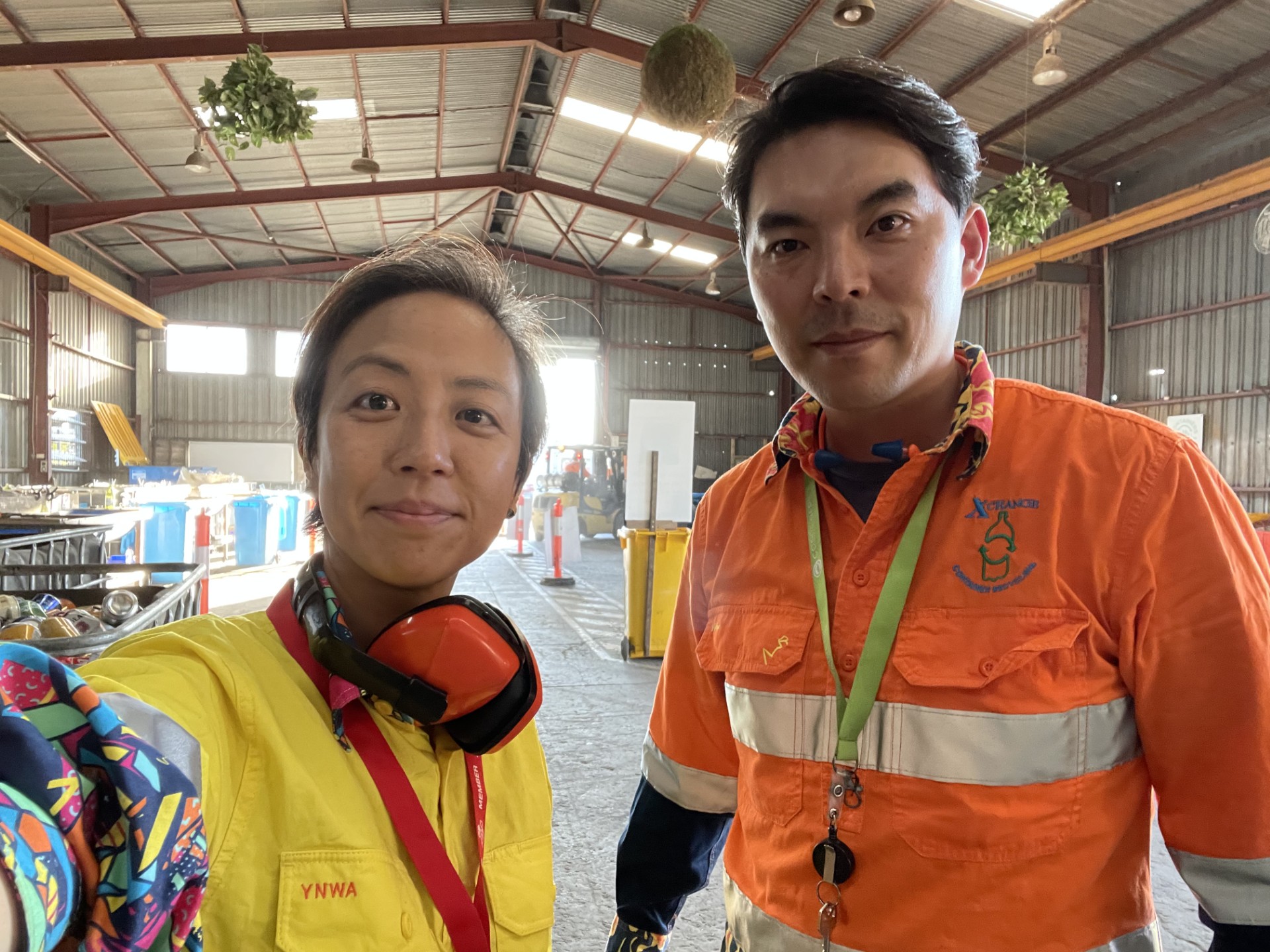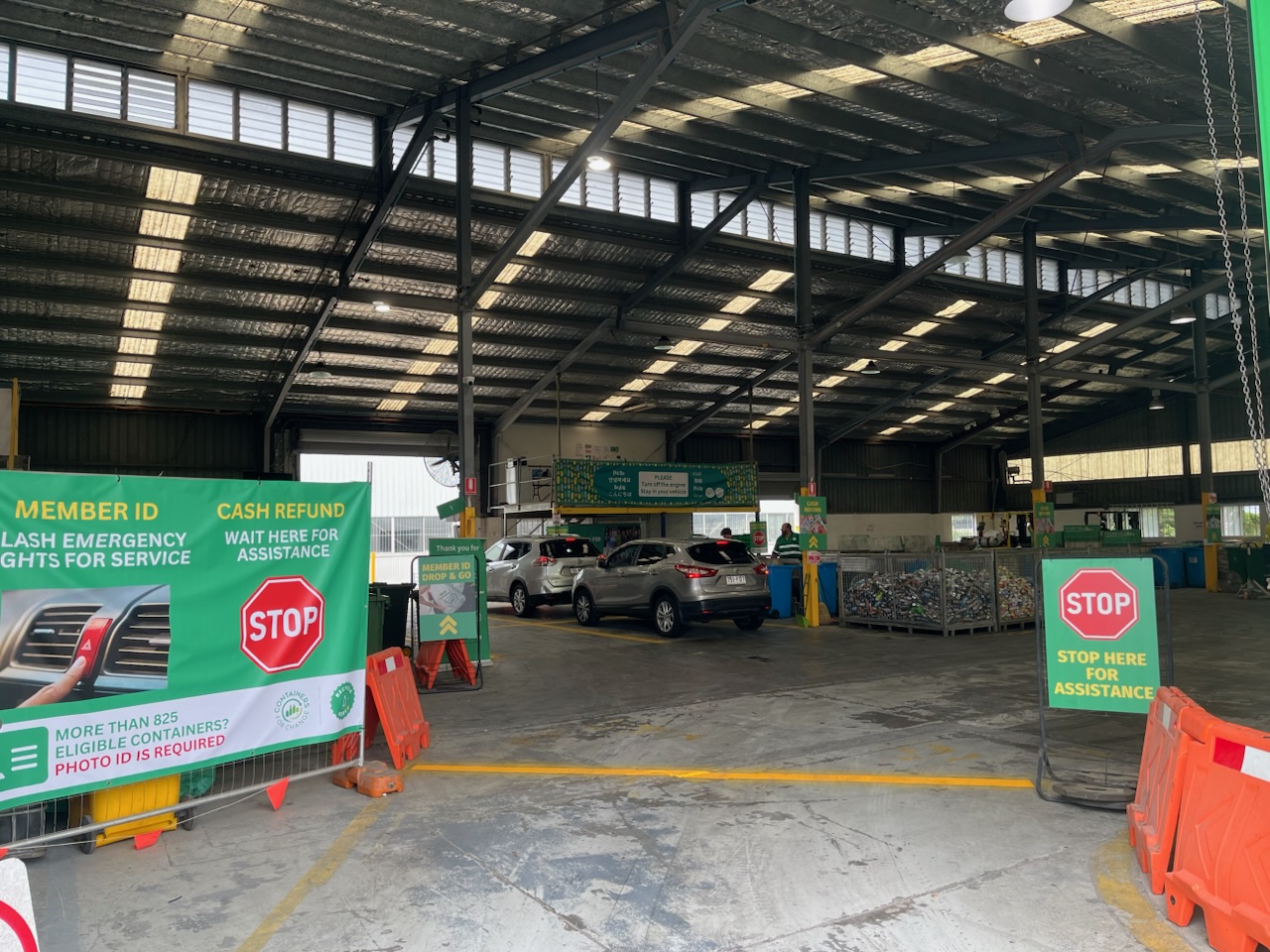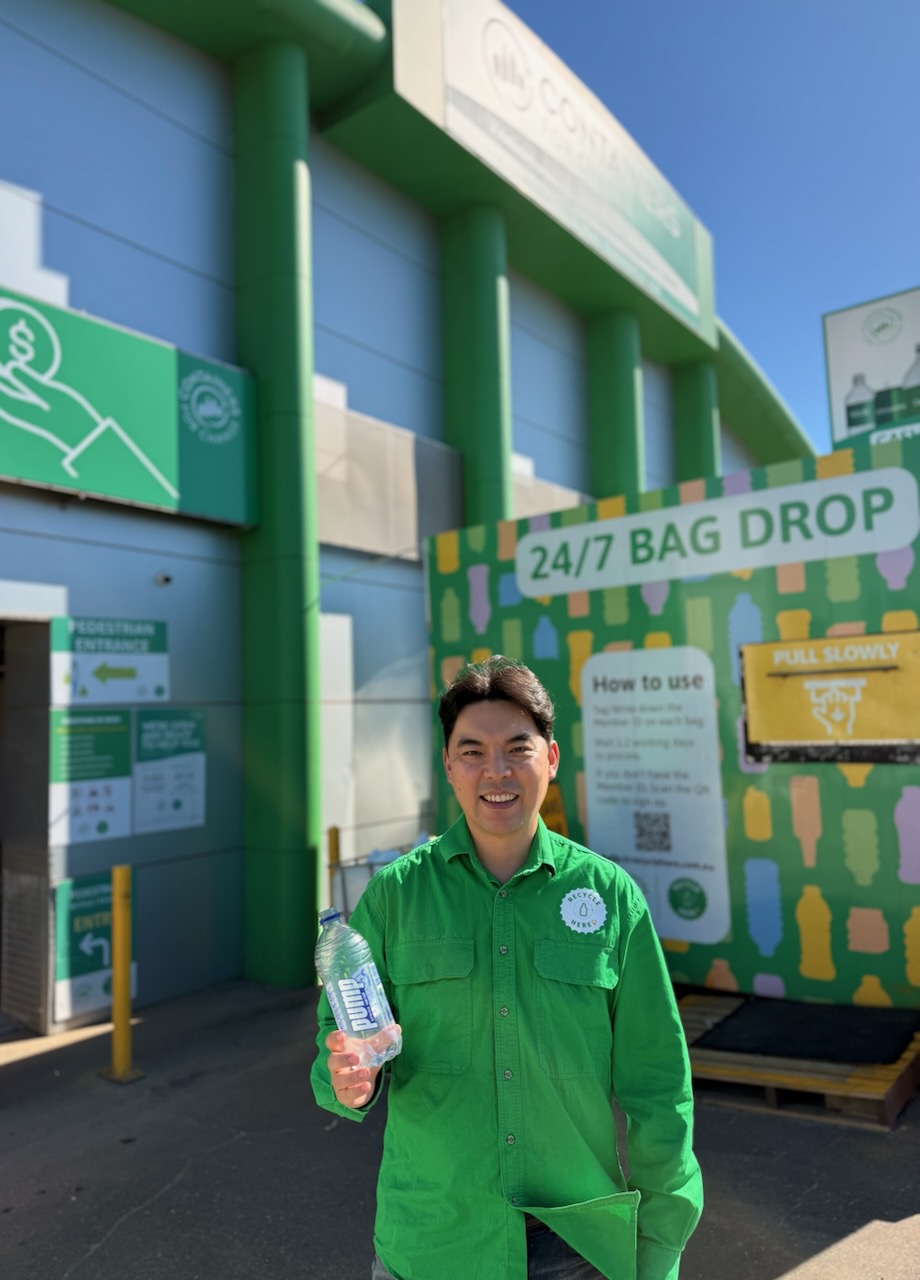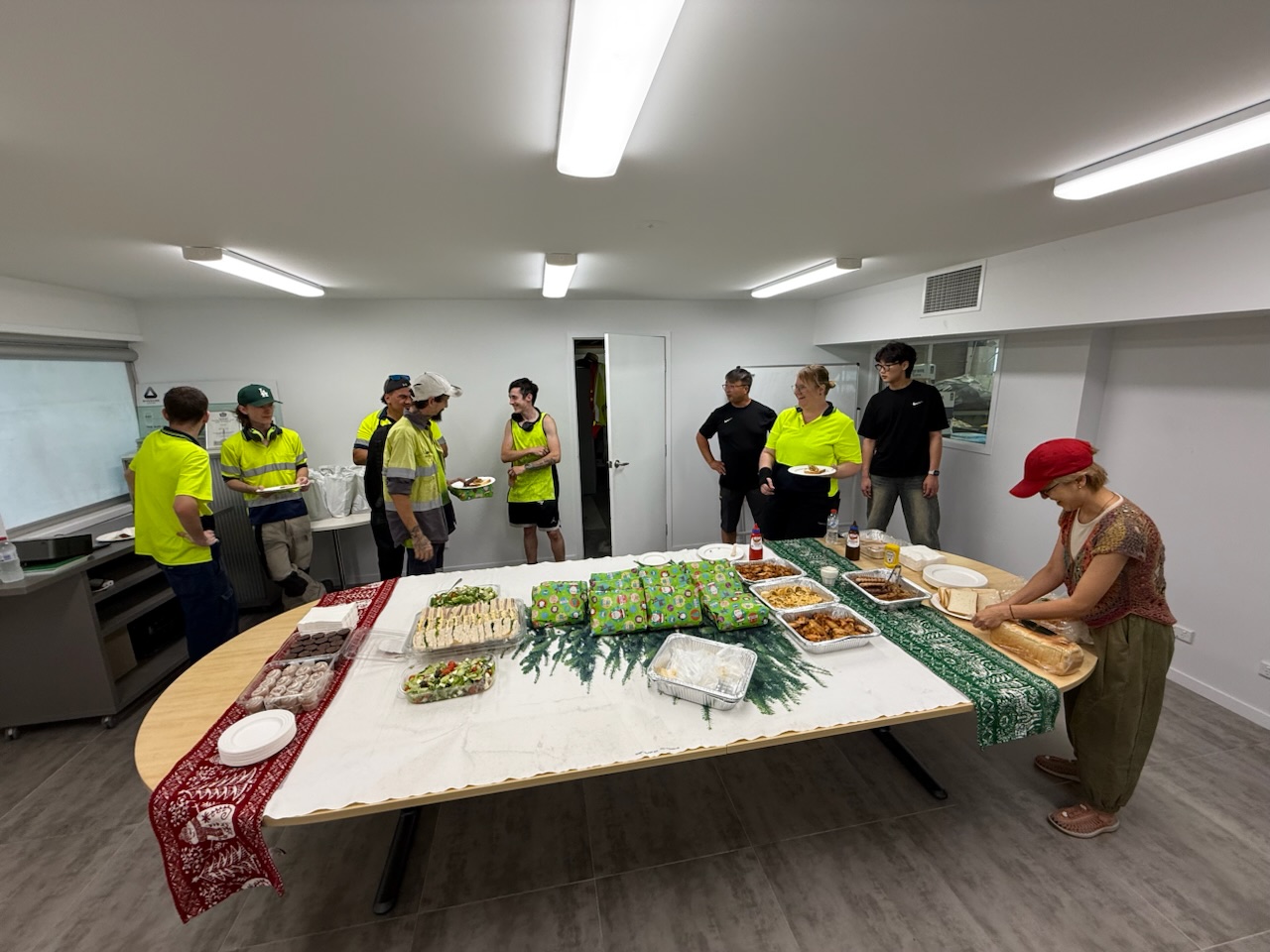By Garry Sanossian
Eight years ago, standing amidst the slums of Talisay in the Philippines, Deb and John Kim were surrounded by piles of waste and the stench of decay. Deb and John, now shepherds at Heartbeat Church’s Gold Coast Campus, witnessed a problem during that confronting mission outreach that led them to launch Recan, an environment-tech business and social enterprise.
Their vision was to revolutionise how Australia handles container recycling while creating meaningful employment for people society often overlooks. Today, Recan operates a recycling depot in Brisbane and develops software that connects recycling centres with pickup operations through AI-powered logistics.
Deb and John’s journey from that Philippine slum to building a scalable social enterprise began with a simple realisation about waste’s true human cost.
“We saw that waste was a pandemic before COVID happened,” John recalls of their time in the Philippines. “We witnessed first-hand how the waste problem affected and destroyed people’s dignity, their way of life. From generational poverty to health issues, crimes, addictions – you name it – everything was connected to this issue. Then we wondered, could we help change that – not just through ministry, but by creating something more sustainable?”
John, a former corporate executive, and Deb, a social entrepreneur, began to sense that God was planting a deep vision in them – and it wasn’t just for the people they met in the Philippines. What started taking shape was a solution-focused model they could build in local settings, world-wide, where waste was an epidemic.
“Entrepreneurs are called to create solutions for problems that are close to our hearts. We call it a ‘solutionary’ way of living,” Deb explains.

John and Deb at Recan depot.
After a year of travelling the world as a family, studying different ways countries solve the problem of waste, the Kims landed back in Australia, determined but unsure what would come next. That’s when an unexpected opportunity presented itself. Queensland’s new 10-cent container deposit scheme had just launched, creating a practical opening to turn their conviction into action.
“We didn’t think that our venture would begin in Australia, but like many divine stories, unexpected places become our testing grounds for faith and obedience,” Deb said.
In 2019, that vision came to life as John and Deb launched Recan, an environment-tech business in Brisbane. Recan provides a B2B SaaS platform that connects recycling depots with container pickup operations through AI-powered logistics management.
Just as Uber connects riders with drivers through smart routing and real-time tracking, Recan’s platform enables recycling depots to efficiently coordinate, schedule and manage container collections from various pickup points optimising routes, tracking inventory and streamlining the entire refund process from collection to processing.
However, Recan didn’t take off at first, and the Kims went through a tough season financially and physically due to Deb’s health. It was a season to learn being patient and to surrender.
In 2021, when an opportunity to acquire a local recycling refund depot in Brisbane came up, they jumped at the chance to get started. Having been prepared by their journey of research and discernment, the Kims were ready to become social-enterprise business owners who not only understood the daily operations of a recycling depot but also the multi-disciplinary partnerships and structure that runs the waste sector.
Over 6 years into operation, Recan is now developing an all-in-one software for 10c container pickup depots combining booking, pickup coordination and refund processing into one platform, replacing multiple programs and manual processes.

While this software product supports their work in a bigger scale, the depot remains their focus as a hub for environmental impact and a gathering place for Brisbane’s most vulnerable.

John Kim at Recan depot.
From the beginning, the Kims’ vision was never just another recycling business. It was about creating jobs for the people society often forgets – a passion that predated their time in the Philippines.
“Before John began his career in the multinational corporate field, it was his absolute conviction that when the time came for him to start his own company, he would create jobs for the marginalised people in society,” Deb explained.
In their exploration around waste solutions, the Kims were seeking an industry where individuals facing employment barriers could be given a genuine opportunity. “We knew we needed to step into a space where people who had been left out could find a way in,” Deb said. “When we saw the waste problem, and the channels it could create for people, we knew we had to dive deep.”
Today, the depot employs 16 people, many of whom have faced barriers to employment. “Most of our staff lived through difficulties, with no formal qualifications,” John explained. “Some carry a history of criminal activity and were never given a chance at full-time work, while others have struggled with severe addictions, domestic violence, and other challenges.”

Recan team members having lunch together.
The transformation stories that emerge from the depot speak to the power of second chances. One employee, a 55-year-old man, received his first full-time job offer after working with the Kims. “No one had ever trusted him, but we wanted to see him become the person he was created to be,” John said.
John has had many experiences like these with employees who are socially disconnected – some of whom haven’t even had a coffee from a café before, until being offered one at work.
The depot team members have worked with individuals battling mental health issues, addiction, homelessness and past criminal records. “You name a social problem, it’s here,” Deb said. “Once you become part of the team, we are not just your bosses. We become friends, family, and stewards that offer something more than a paycheck – a picture of eternity.”
“We don’t push an agenda because we are believers who own a company,” John said.
“I will do my best to provide a setting where we equip you as a worker, grow you as a person, empower you as a citizen. That means, if you’re going through a hard time, we battle through together.”
The Kims have found that the depot’s location places them right in the path of those society turns a blind eye to. “We meet people in dire situations on a daily basis. Often, they live on the refund received from bottles they picked up on the streets,” Deb said.
It’s through these daily encounters that the business’s deeper purpose is realised.
“Sometimes the Holy Spirit just nudges you, and you know in your spirit that you have 30 seconds to speak life and truth into someone’s life, maybe for the first and the last time,” Deb said.
For John and Deb Kim, purpose is not just a motivational word, it’s the foundation of everything they do. They operate by what they call the “four P’s”: purpose, people, profit and passion – a framework that keeps them anchored to their deeper calling.
“As a believer and a follower of Jesus, it’s not just about profit or passion,” John said. “You carry purpose with it all, then God can use you as a channel of blessing.”
This mindset transforms how they see work itself. “Your work becomes a holy place,” John said.
“The way you see people, your employees, your customers. Even your profit and loss table, it all shifts when it’s rooted in purpose.”
For the Kims, there is no dividing line between faith and work. “I don’t want to separate the sacred from the secular,” John said. “We need to stay sensitive to the Holy Spirit, especially when we are making executive decisions and forming business strategies.”
“For us, it’s a lifestyle. Jesus didn’t debate those lines. He simply came to live among us and modelled wholeness in the most mundane everyday way,” Deb added.
Their long-term vision reaches beyond Queensland to emerging nations where waste management challenges are even more significant. “We envisioned we would bring this kind of model to the local settings in countries most affected by the waste problem, but not as a charity. We want to offer a system and a strategy that is tangible, sustainable and scalable,” John said.
Today, as ‘shepherds’ at Heartbeat Church’s Gold Coast campus, where they oversee leaders across the church’s three locations, John and Deb continue to demonstrate how business and faith can work together seamlessly.
Looking ahead, the Kims hope their software will help scale this model globally, creating jobs for thousands more. “We don’t want this to stop with us,” John said.
“This model works, both for business and for impact. We believe it can expand the Kingdom and bring real change to people’s lives.”
Deb concluded, “We were called to steward this planet, why not do it with the people who are at the centre of God’s heart, who are labelled as the lost, the last and the least? So here we are – one bottle at a time, one life at a time.”